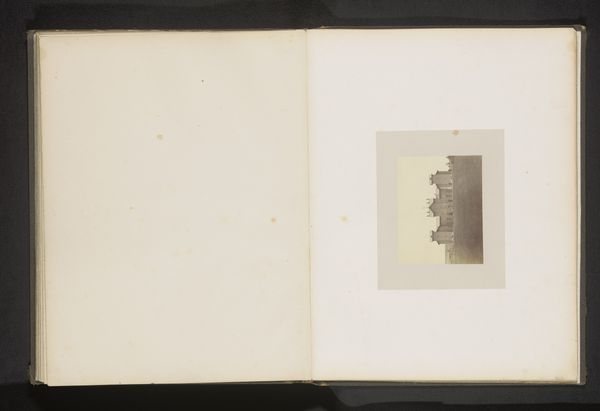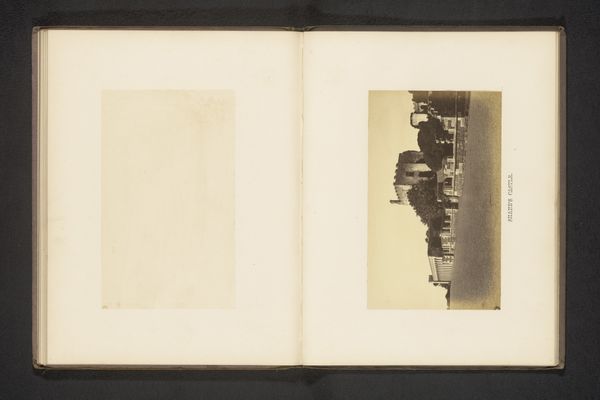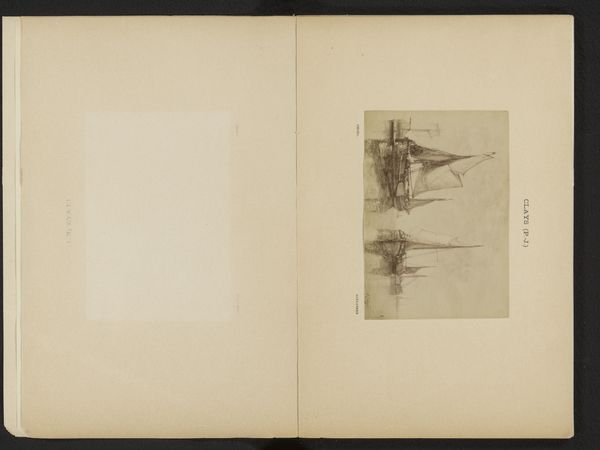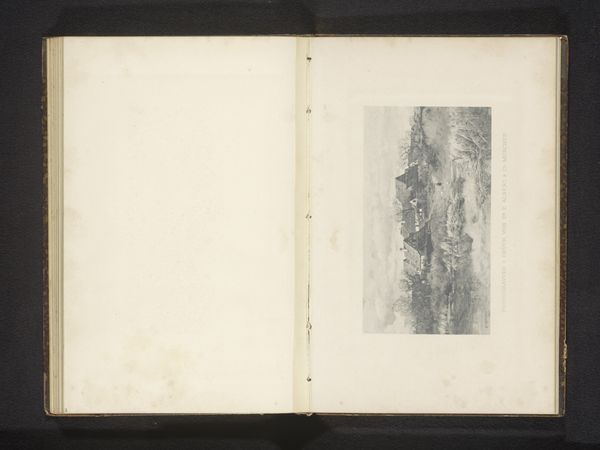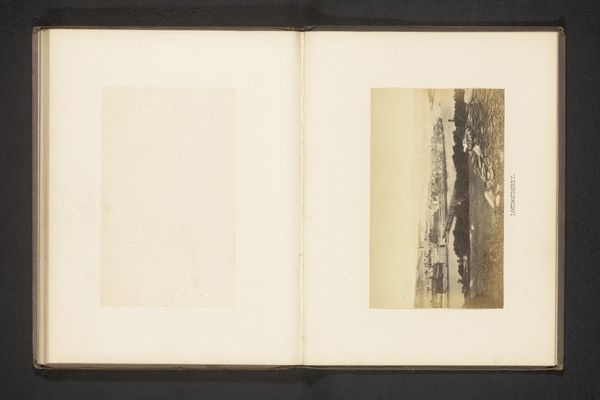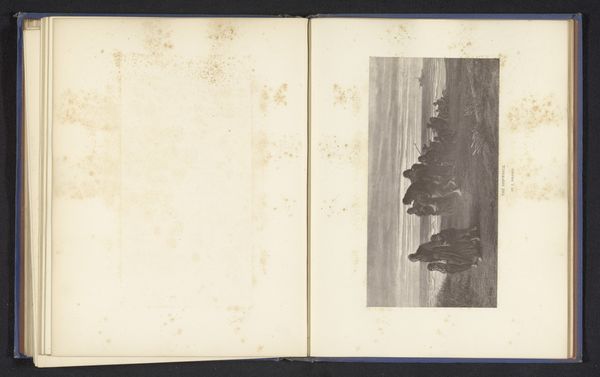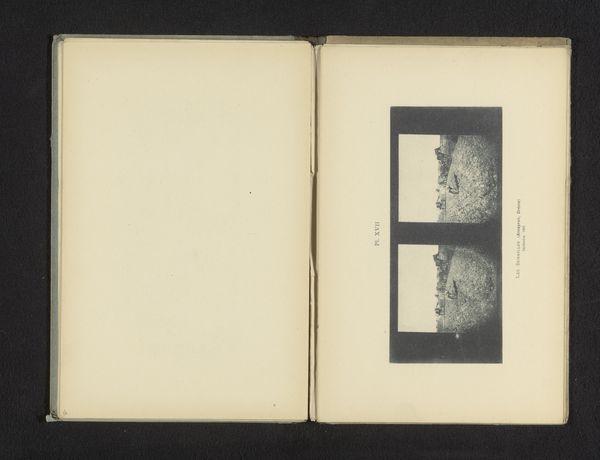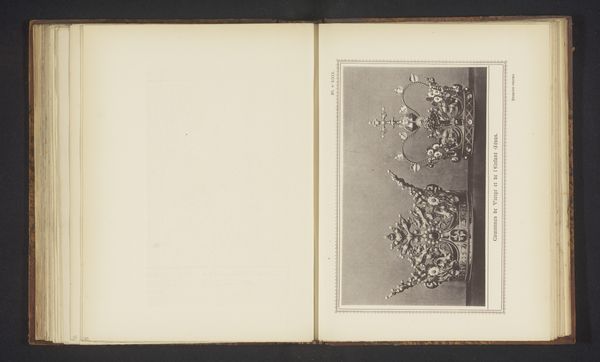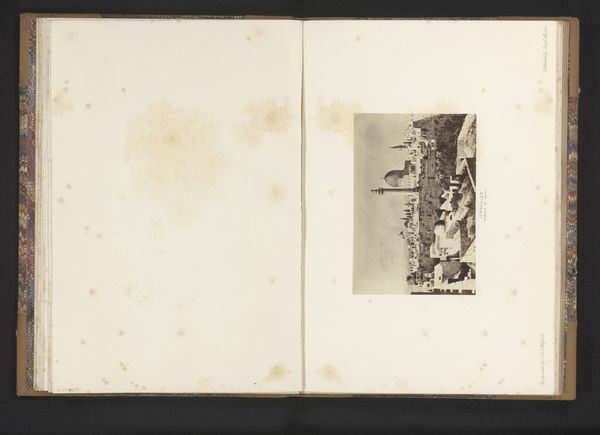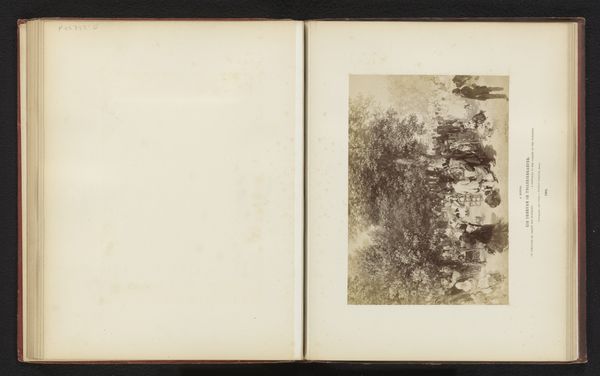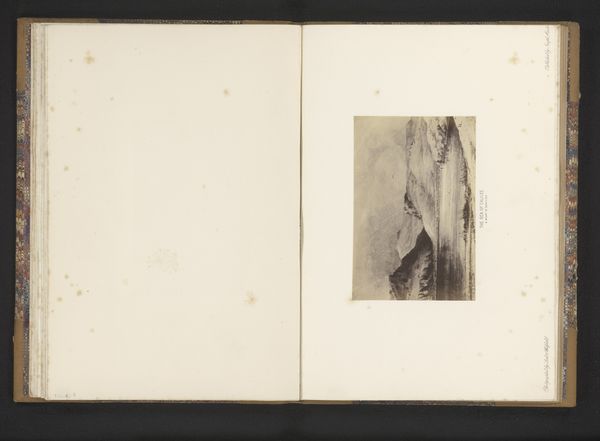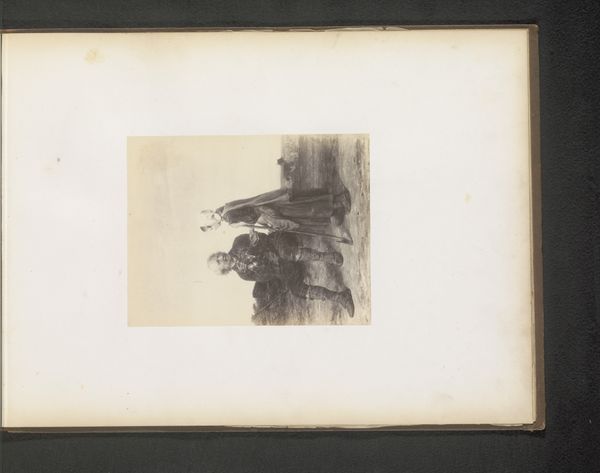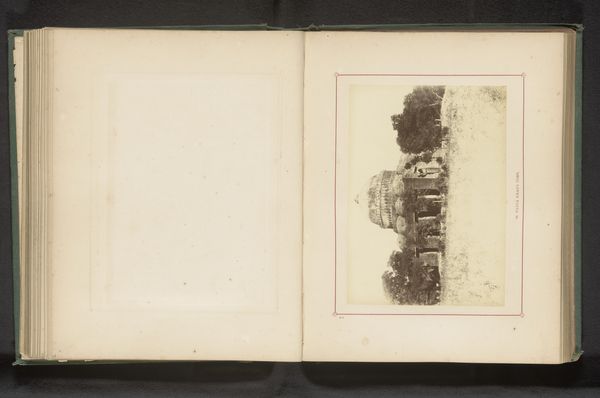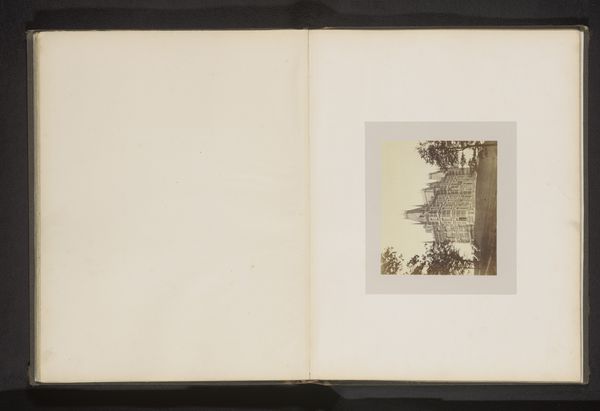
print, photography
# print
#
landscape
#
photography
#
horse
#
genre-painting
#
realism
Dimensions: height 100 mm, width 145 mm
Copyright: Rijks Museum: Open Domain
Curator: Here we have a photographic print titled "Fotoreproductie van L'abreuvoir door Christian Adolf Schreyer," created before 1893 by Alexandre, the photographer. It’s a reproduction of Schreyer's painting "L'abreuvoir," depicting horses drinking water. Editor: My initial reaction is... muted nostalgia. The tones are so soft, almost like a memory fading at the edges. It's quiet, but there's a sense of implied motion, that those horses are momentarily still, a brief pause in labor, before they have to move again. Curator: Interesting, especially noting "labor," because Schreyer was a celebrated painter of horses, known for his dynamic depictions often set in military or working contexts. This image, a photographic reproduction, complicates that. We're seeing a copy, a mass-produced object attempting to capture the essence of a fine art painting, democratizing its distribution. Editor: True. There's an irony here. The painting captures action and power, and this photogravure turns it into something almost fragile. You think about the actual physicality—the ink, the paper. It's about transforming it from a piece of brushstrokes into something anyone could possess as long as they had the price for the image. But, what’s the image divorced from labor, brushstroke, and movement? Curator: Exactly! The consumption of the image itself becomes the primary interaction with the art, distancing us from the artist's hand, the hours of labor creating it. We also have to remember Alexandre's labor in the photo-reproduction itself: he, too, worked within the economy of image production and dispersal, with its attendant economic considerations and potential constraints on what, where, and how images circulated. Editor: So it's a photograph about a painting that's about work, made to sell more pictures of something majestic now transformed through this specific medium and its moment. Curator: Precisely. A fascinating layering of industrial reproduction onto artistic representation. Editor: Well, that certainly deepens my initial sense of fleeting peace and manufactured memory. All of a sudden, I want to see the painting again! Curator: And I'm intrigued by the complex web of production and access this photograph lays bare, which makes it interesting on its own merit.
Comments
No comments
Be the first to comment and join the conversation on the ultimate creative platform.
